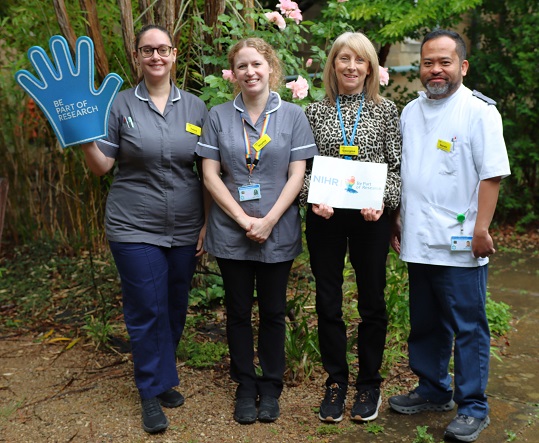Media Release
Date: 27 May 2025
RUH researchers support national stroke study
Researchers at the Royal United Hospitals Bath NHS Foundation Trust are involved in a national study to develop a tool to guide clinicians when they are assessing people suffering symptoms which could be caused by both migraines and transient ischaemic attack, also known as ‘mini-stroke’.
The new assessment tool will help to predict whether a person is at risk of a stroke. Before a stroke happens, many people have a transient ischaemic attack (TIA). A TIA and migraine can have identical symptoms but only people with TIA require treatment to prevent stroke.
Currently it can be difficult for healthcare staff to distinguish between TIA and migraine because there is no definitive diagnostic test or assessment process.
The SMART research study, funded by the National Institute for Health and Care Research (NIHR) and led from Newcastle University, is collecting information from people who have symptoms which could be caused by both TIA and migraine.
The information will be used to create a new assessment process to standardise care. The assessment will use a patient’s symptoms and other general health information to estimate their risk of stroke. This risk assessment can then be used to guide treatment and to indicate whether symptoms were more likely due to TIA or migraine.
Patients attending the RUH’s TIA Clinic will be asked whether they wish to take part in the study. If they do, researchers will collect information about their symptoms, treatments received, and what happens to their health over the 90 days following the symptoms.

Hayley Stoney, RUH Stroke Research Nurse, said: “We’re delighted that the RUH has been chosen to support with such an important national study.
“We were one of the first research sites to be signed up to take part and are already recruiting patients who attend our TIA clinic.
“By helping to develop a tool for healthcare professionals to improve care for people with TIA and migraine we are making a really positive difference to the health outcomes of patients here at the RUH and around the country.”
You can find out more information about research at the RUH and how you can get involved on our website: https://www.ruh.nhs.uk/patients/research_development/index.asp


